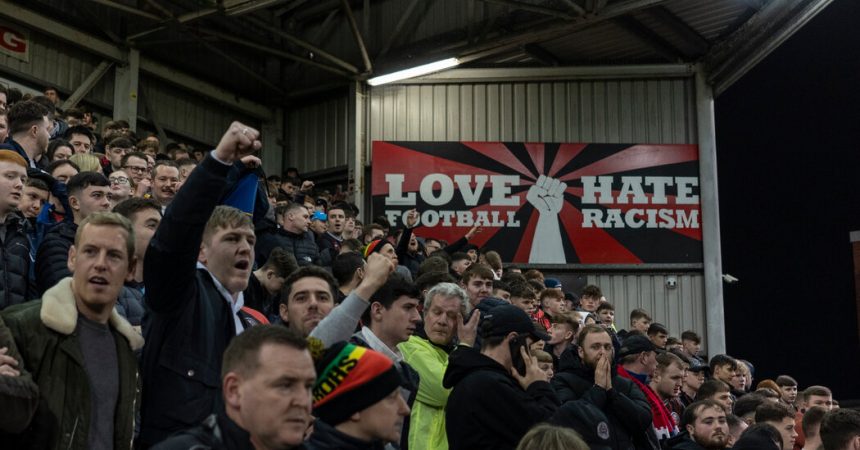In the back room of the threadbare offices of the Irish soccer team Bohemians, the printer clunks and chugs and whirs incessantly, spitting out a cascade of shipping labels. Some of the addresses bear the names of nearby Dublin streets. Others are from farther afield: across Ireland, across the Irish Sea, across the Atlantic.
Each label will be affixed to a package containing a Bohemians jersey. And these days, the club sells a lot of jerseys.
The appeal is not rooted in any of the traditional drivers of soccer’s merchandise market: success, glamour, a beloved star player. Daniel Lambert, the club’s chief operating officer, loves both Bohemians and the League of Ireland, the competition in which it plays, but he is under no illusions about the reality of either. “We’re a small team in a poor league,” he said.
Instead, fans are drawn to Bohemians by the jerseys themselves; or, rather, what the jerseys say, both about the team and the customer.
Some recent editions have drawn on the cultural iconography of Dublin: the Poolbeg cooling towers; the pattern from the city’s bus seats; the face of Phil Lynott, former frontman of the band Thin Lizzy. Others send a more explicit message: One of this season’s efforts has been designed in the colors of the Palestinian flag. A couple of years ago, another bore the slogan “Refugees Welcome.”
In a studiously apolitical sport, where most teams avoid staking out positions except on the safest of ground — and at a time when Ireland is trying to douse the sparks of a flickering culture war — that makes Bohemians an enthusiastic, unabashed outlier: a rare example of a soccer club willing to wear its values on its sleeve, its torso and any other surface it can find.
The New York Times











